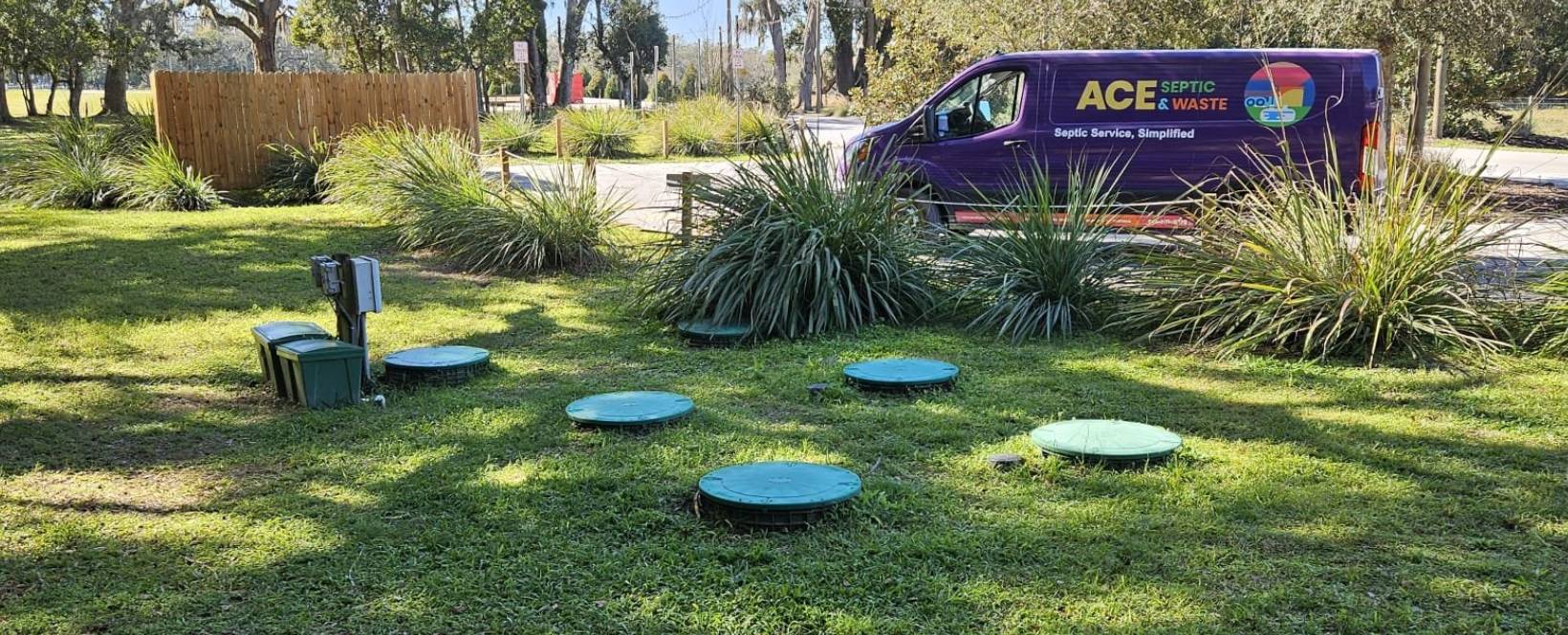Everyone knows just how unpleasant septic odors can be. But despite the bad smell, these odors often indicate potential issues with your septic system that need to be addressed promptly. Here’s a comprehensive look at the top ten most common causes of septic odors and how you can resolve them.
Full Septic Tank
One of the primary reasons for septic odors is a full septic tank. When the tank is full, it can lead to backups and the release of foul smells.
Solution: Regularly schedule pumping and maintenance to prevent overfilling. This simple step can keep your system running smoothly and odor-free. ACE Septic & Waste recommends having your septic tank pumped every 2-3 years.
Blocked Vents
Septic system vents allow gases to escape safely. If these vents become blocked, gases can build up and cause unpleasant odors.
Solution: Check and clear any obstructions from vents, such as debris, bird nests, or snow. Keeping vents clear ensures proper ventilation and prevents odor buildup.
Drain Field Issues
Problems with the drain field, such as saturation or failure, can cause sewage to surface and emit odors.
Solution: Ensure proper installation and maintenance of the drain field. Address any drainage issues promptly to prevent sewage from surfacing.
Leaks in Plumbing
Leaks in the plumbing system, especially in pipes leading to the septic tank, can cause septic odors inside the building.
Solution: Inspect and repair any leaks in the plumbing system. Regular inspections can catch leaks early and prevent odor problems.
Improperly Sealed or Damaged Components
Septic tanks and other components that are not sealed properly or are damaged can allow odors to escape.
Solution: Regularly inspect and maintain all septic system components, ensuring they are sealed and in good repair. Proper sealing is crucial for keeping odors contained.
Poorly Functioning Bacteria
The bacteria in the septic tank are crucial for breaking down waste. If these bacteria are killed off by chemicals or medications, odors can result.
Solution: Avoid flushing harsh chemicals, medications, and antibacterial products. Consider adding bacterial treatments to maintain a healthy bacterial balance.
Plumbing Backups and Clogs
If the sewer line or septic system is clogged, sewer and septic gases can back up into the home or building.
Solution: Be smart about what you flush into your septic system. Septic systems are designed to handle only waste products and toilet paper. Avoid flushing items like “flushable” wipes or food and grease.
High Water Usage
Excessive water usage can overwhelm the septic system, preventing it from processing waste efficiently and causing odors.
Solution: To avoid overloading the system, practice water conservation and spread out water-intensive activities. This can help maintain optimal function and reduce odors.
Poorly Designed or Installed System
A septic system that is not designed or installed correctly can lead to chronic odor issues.
Solution: Ensure your septic system is designed and installed by qualified professionals. Correct any design flaws if necessary to ensure proper function and odor control.
Weather Conditions
Extreme weather conditions, such as heavy rain or extreme cold, can affect the septic system’s performance and cause odors.
Solution: Protect and insulate the septic system components as needed. Ensure proper drainage around the drain field to manage the effects of weather conditions.
Think Smart Septic with ACE Septic & Waste
Understanding the common causes of septic odors can help you proactively maintain a healthy and odor-free septic system. Regular maintenance and prompt attention to any issues are vital to preventing and resolving septic odors. At ACE Septic & Waste, we are committed to helping you keep your septic system in top condition. Please contact us if you’re experiencing septic odors or need maintenance services. Let’s work together to ensure your property stays odor-free and safe.







